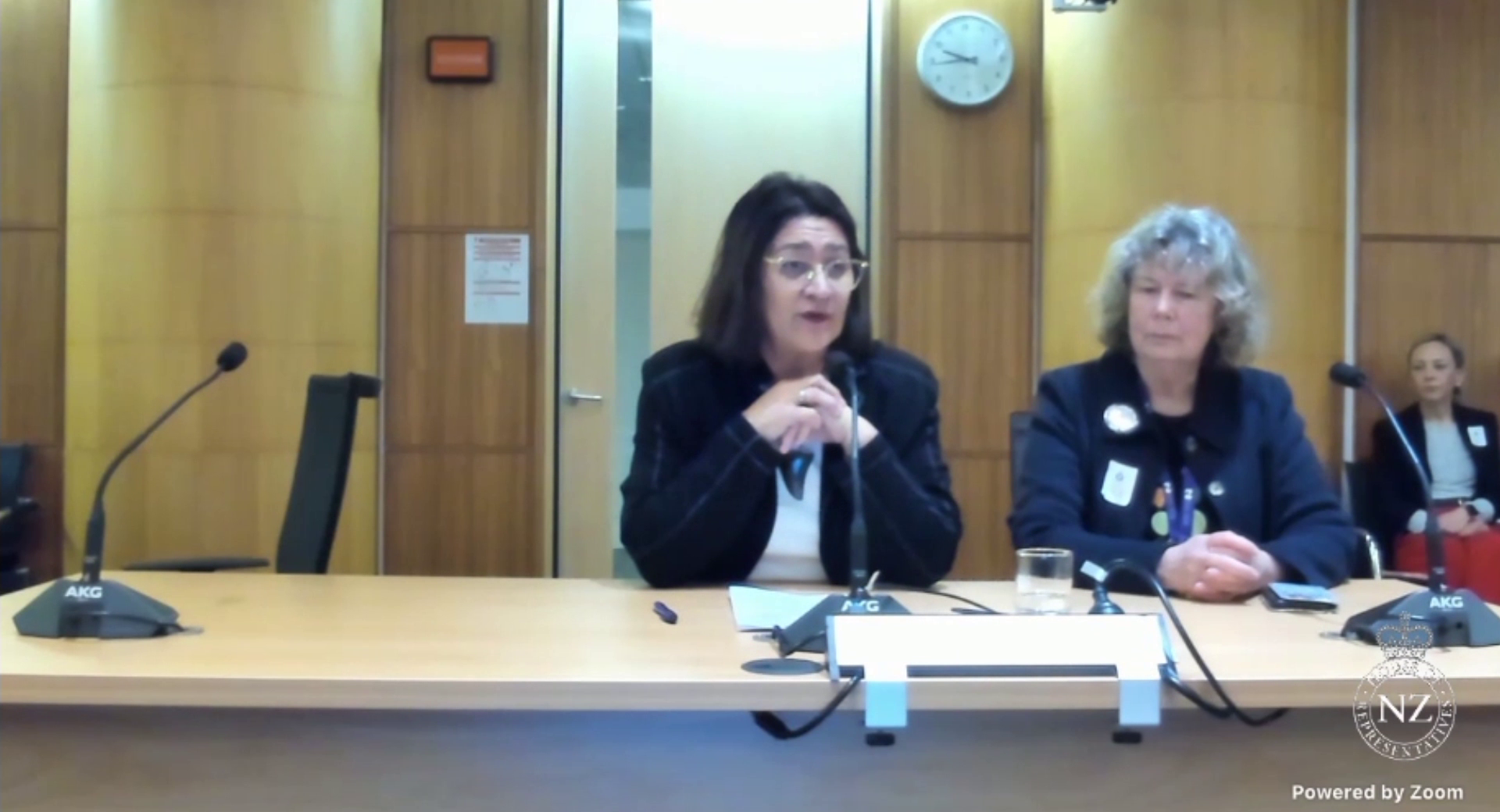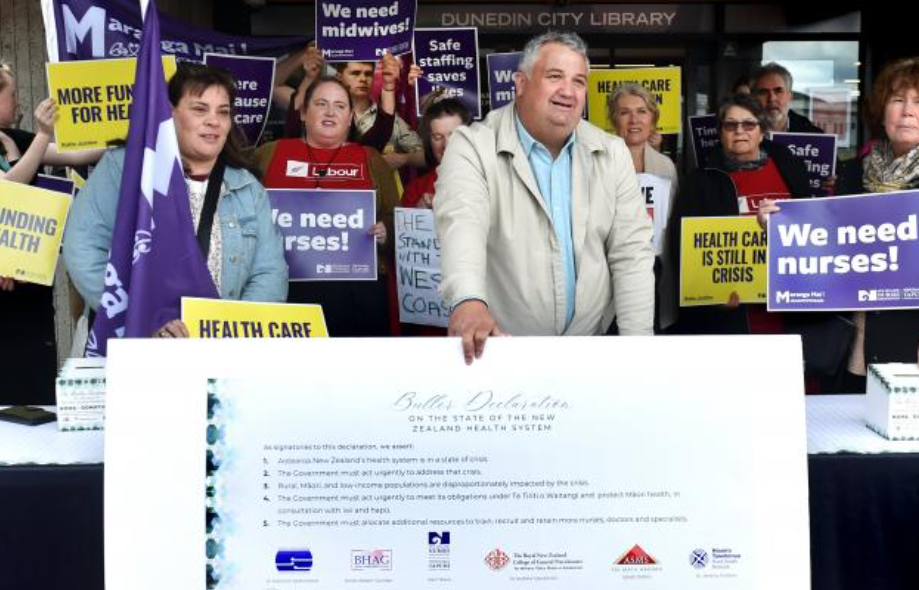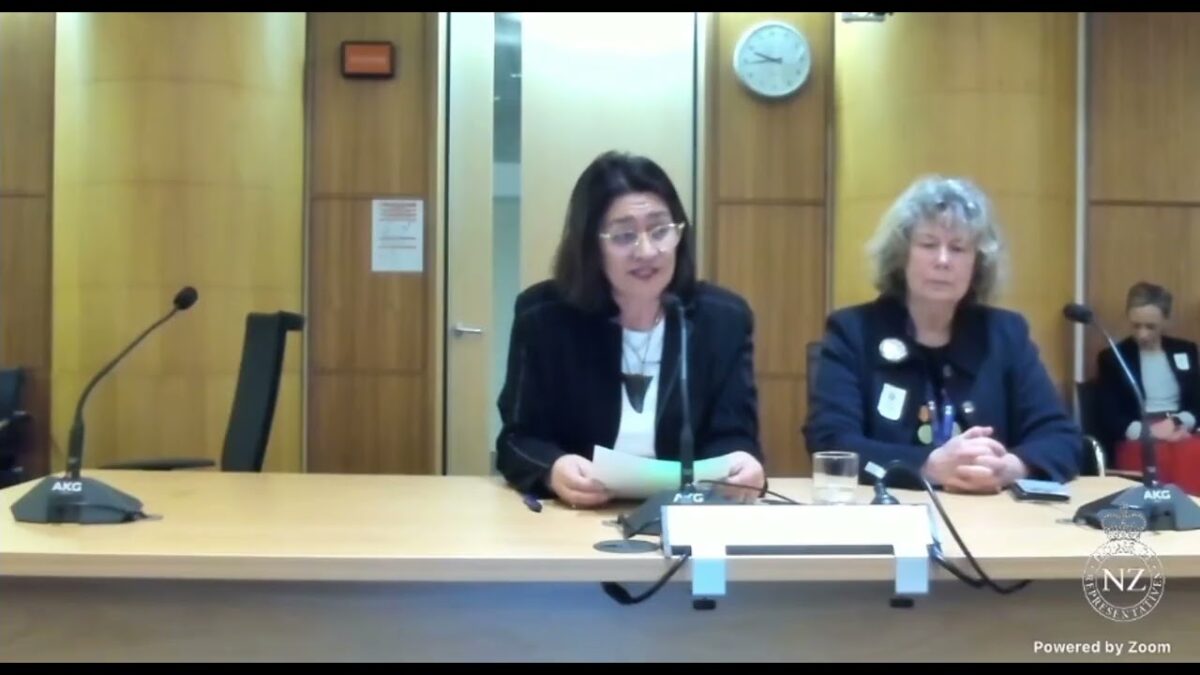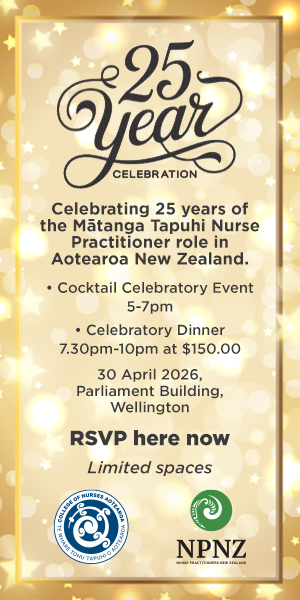NZNO kaiwhakahaere Kerri Nuku appeared with president Anne Daniels before the health committee considering the Healthy Futures (Pae Ora) Amendment Bill.
Nuku said NZNO rejected “in its entirety” a Bill from a Government that wanted to silence Māori and render their health needs invisible. “We will never let that happen.”
The Government sought to stoke racial animosity for political gain at the expense of Māori, she said.
In June Health Minister Simeon Brown announced changes to the Pae Ora (Healthy Futures) Act.

The new Bill strips out guiding principles for equity and Māori engagement in the system; it removes commitments to Te Tiriti, and depowers Iwi Māori Partnership Boards.
It comes after the Government dumped Māori Health Authority, Te Aka Whai Ora in 2024.
Nuku said the Bill was rolling back gains from decades of Māori health initiatives, which had been admired internationally.
The 2022 Pae Ora Act was driven by the findings of the Wai 2575 Waitangi Tribunal Inquiry into Māori health services, she said.
“This Government has systematically dismantled the infrastructure painstakingly built by Māori and the health sector to enable Māori to take responsibility for improving their health status.”

Māori are twice as likely to die from suicide as non-Māori, have higher mortality rates from cancers, and heart disease, double the smoking rate, and die on average about eight years earlier.
‘Nurses will be silenced’
The Bill includes a requirement for nurses to follow public service principles including political neutrality, which could have a “frightening effect” on their right to freedom of expression, Nuku said.
Nurses could be disciplined by their employer for speaking up for patients if it’s considered against the organisation’s interest, or is considered political, not a clinical comment, she said.
“This would be in direct conflict with the long-held professional and ethical standards that govern nursing and require the care of patients to be their first concern.”

Meanwhile Buller Declaration architect Malcolm Mulholland spoke about presenting to the health committee on Pharmac funding with his wife Wiki before she died from breast cancer in 2021.
His wife was unable to fulfil her last wish — visiting giant Far North kauri, Tāne Mahuta — because of the sluggish Covid vaccine roll-out, he said.
Delays in the roll-out, he said, came after a lack of engagement with Māori communities to encourage vaccine uptake.
That problem would likely get worse under the proposed law, which diluted Te Tiriti, and would “negate the effectiveness of engagement with Māori health providers”.
Mulholland asked whether this would cause delays once again in vaccine rollouts if there was another pandemic.
The health committee is expected to report its findings to Parliament in late November, with a second reading of the Bill some time after that.






